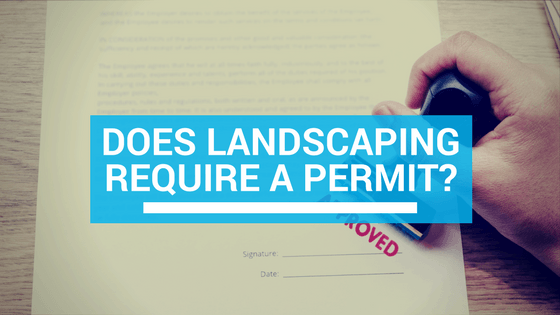
15 Feb Does Landscaping Require a Permit?
The short answer is, no, typically adding landscaping to your home does not require a permit. The longer answer is a bit more complex…
For a single-family home, adding items like individual plants, or even new sod can usually be done without a permit. Along with landscape lighting, mulch, border and other landscaping items. Especially if you do it yourself.
If you live in a townhouse or community managed by a homeowner association, they may have specific rules and regulations you must follow for any new exterior improvements, including landscaping. Oftentimes, planned communities utilize a landscape contractor (like Westcoast) to maintain common areas, while homeowners must maintain their own yards. Always check with your association prior to tackling your next landscape project.
In general, here are some things to consider when planning your landscaping:
Electrical
If you are digging near underground electrical, gas or other utilities, you’ll need to contact the utility provider so they can mark the location of these underground obstructions. Especially if you are digging lines for new irrigation.
Fencing
Permitting does come into play when you add or replace a fence, or plan to add any? sort of structure near your property line. Your city, county or state may have additional rules and regulations in place as well, and may require CAD or professional renderings of the fencing. In addition, a homeowner or community association may have other regulations you must meet, including the type, color and height of fences. Unless you live in a rural or relatively unregulated area, doing your own fencing will require some legwork.
Tree Removal or Trimming
Another area to consider is the removal or trimming of any trees. Sometimes local ordinances require permitting before doing anything to trees on your property and, on occasion, there are special ordinances for protected species.
Other major landscaping additions may require permitting, such as building or repairing a retaining wall, drainage and sewer. Anything that has the potential to impact surrounding properties will probably necessitate permitting.
Additionally, if you are required to obtain a permit for your landscaping project, that project will also require inspection when it is complete. Ensure that you or your contractor finalize your project by getting any permitted work inspected.
Using a professional landscaper is one way to overcome the stress of pulling permits. This would be included in your contract and done seamlessly. A professional landscape contractor will also be able to guide you and knows how to navigate homeowner associations, community development districts, and government regulations.




Sorry, the comment form is closed at this time.